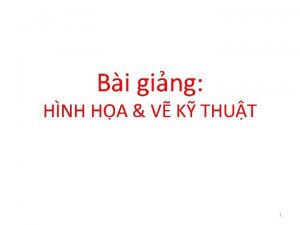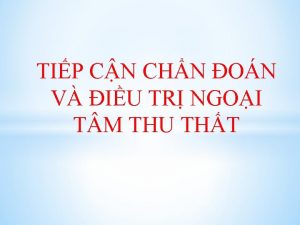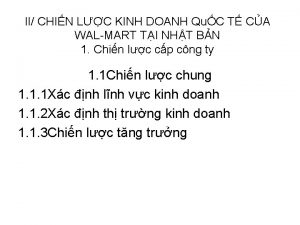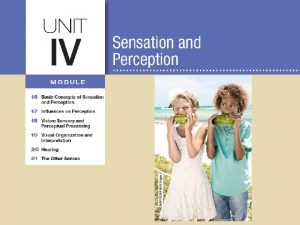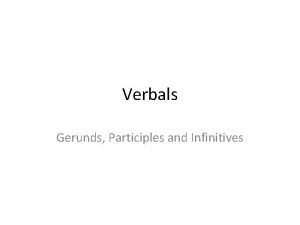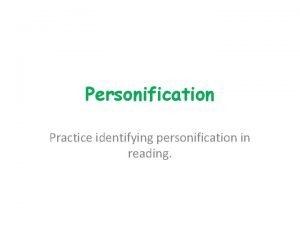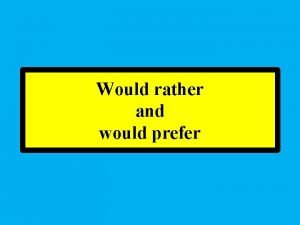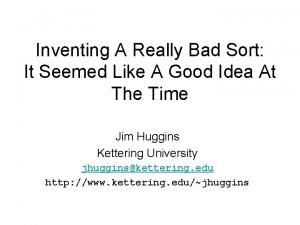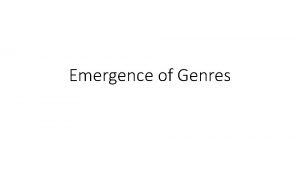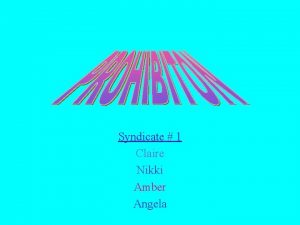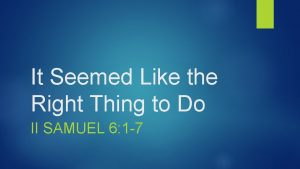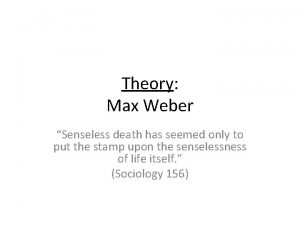It seemed rather incongruous that in a society

















- Slides: 17

“It seemed rather incongruous that in a society of supersophisticated communication, we often suffer from a shortage of listeners. ” -Erma Bombeck, "If Life Is a Bowl of Cherries. . . ", 1971

Some stats ¢ Between 1997 and 2003, the Association of Research Libraries median statistics for inperson reference declined 40 percent. ¢ This means that traditional reference work in the reference room with face-to-face interaction is much less likely in the future.

¢ "A librarian should be as unwilling to allow an inquirer to leave the library with his question unanswered as a shopkeeper is to have a customer go out of his store without making a purchase. " ~ Green

¢ One constant that the shift away from inperson encounters has not lessened is the need for good communication skills. In all forms of reference services, the success of the transaction is measured not only by the information conveyed, but also by the positive or negative impact of the patron/staff interaction. " ~ Guidelines for Behavioral Performance of Reference and Information Service Providers – ALA/RUSA

The Reference Interview ¢ ¢ ¢ process of talking with the client to discover what is wanted & then what is really needed involves a series of questions & answers that continues until the satisfied patron leaves the encounter. Ideally - develop into a relationship such that the client becomes a returning customer

So the Question is… Exactly what she wants ¢ How to ask for it ¢ What resources might be available ¢ About your skills and experiences (what you can do) ¢ If you will be welcoming and patient ¢

Assumptions held by librarians ¢ ¢ ¢ should teach clients how to do their own information work should provide patrons with the answers have limited time to spend with each client Patrons are likely to select resources that are easily available and easy to use rather than those that are most helpful materials may not be the best but simply the easiest to access or the most familiar

Assumptions held by librarians, cont. ¢ Clients find resources credible and accurate when information agrees with their prior knowledge and views ¢ Clients quickly become saturated with information (Can digest only small amounts of information at a time) ¢ Information professionals often follow the same path even if a different path would be more appropriate

Information professionals may answer a question by redefining the question to match a familiar strategy or resource ¢ Clients often disguise the real question with a generality ¢ Clients often don't know what they need ¢

Wants and Needs ¢ major purposes of the interview is to transform the "want" into the "need. " ¢ If what most clients request is what they need, there may be little need for the interview. ¢ If what most clients want is not appropriate, then the interview becomes especially important.

Needs focuses on information need…. ¢ ¢ ¢ ¢ The purpose of the information seeking [why is the information needed? ] What would the client like to have in her hands when information seeking is complete? Any deadlines involved [specific date and hour are best rather than "soon"] The type of information needed or required [if for a school assignment] as well as types not acceptable The amount of information needed How much does the client know about the subject? Where did the client hear about the topic?

WORF ¢ W = welcoming, open attitude and body language ¢ O = open-ended questions that cannot be answered with yes or no ¢ R = rephrasing and not repeating the user's query to clarify and confirm ¢ F = follow up to insure user is satisfied [begins with "if this isn't satisfactory, please come back and we'll try something else" and ends by checking with user to insure satisfaction]

“who, " "what, " "why, " "where, " and "when" ¢ ¢ ¢ ¢ "What kind of information would you like to find? " "Who is the information for? " "Is there a deadline involved? " "Do you want items to use here or to take home? " "Are you looking for print or electronic content? " "How detailed or technical should the information be? " "How much information do you need? "

¢ ¢ ¢ "Will you tell me where you have searched so I don't duplicate what you have already done"? "How did you hear about this topic? " "Would you prefer that the information be in particular format? " "When do you need this information? " "What have you already done (prior search history)? "

"What would you like this information to do for you? " ¢ "What can you tell me about. . . . ? " ¢ "Is there a particular aspect of this topic that interests you? " ¢ "How recent does the information need to be? " ¢

Closure “If these materials aren't what you need, please let me know and we will look some more. " ¢ "Is this all the information that you need today? “ ¢ "Does that completely answer your question? " ¢

Bruno’s laws ¢ ¢ ¢ ¢ ¢ Never assume anything about anyone. Get off your duff [don't point, but go with the client] Attempt to answer the original question [even if the "real" need leads to another question] Never take anything interesting to read with you to the desk [give your attention to the floor and likely clients. Make it a practice to follow up on unresolved questions. Keep in mind [you may have heard the question a thousand times, but it's the first time the user has ever asked it] Dress comfortably Avoid library jargon like the plague Be prepared to drop all conversations with colleagues the instant a user appears Always pass along any useful information you encounter in a search
 Gây tê cơ vuông thắt lưng
Gây tê cơ vuông thắt lưng Block xoang nhĩ độ 2
Block xoang nhĩ độ 2 Tìm độ lớn thật của tam giác abc
Tìm độ lớn thật của tam giác abc Sau thất bại ở hồ điển triệt
Sau thất bại ở hồ điển triệt Thơ thất ngôn tứ tuyệt đường luật
Thơ thất ngôn tứ tuyệt đường luật Con hãy đưa tay khi thấy người vấp ngã
Con hãy đưa tay khi thấy người vấp ngã Thơ thất ngôn tứ tuyệt đường luật
Thơ thất ngôn tứ tuyệt đường luật Tôn thất thuyết là ai
Tôn thất thuyết là ai Ngoại tâm thu thất chùm đôi
Ngoại tâm thu thất chùm đôi Walmart thất bại ở nhật
Walmart thất bại ở nhật Gerund as subject examples
Gerund as subject examples To wait seemed foolish when decisive action was required
To wait seemed foolish when decisive action was required Bryanna and charles are in a dancing competition
Bryanna and charles are in a dancing competition Figure 17-3 shows smaller and larger beaks
Figure 17-3 shows smaller and larger beaks Infinitive as indirect object
Infinitive as indirect object The angry sky roared and threw lightning around in urdu
The angry sky roared and threw lightning around in urdu Gertler econ
Gertler econ Would prefer not to grammar
Would prefer not to grammar


